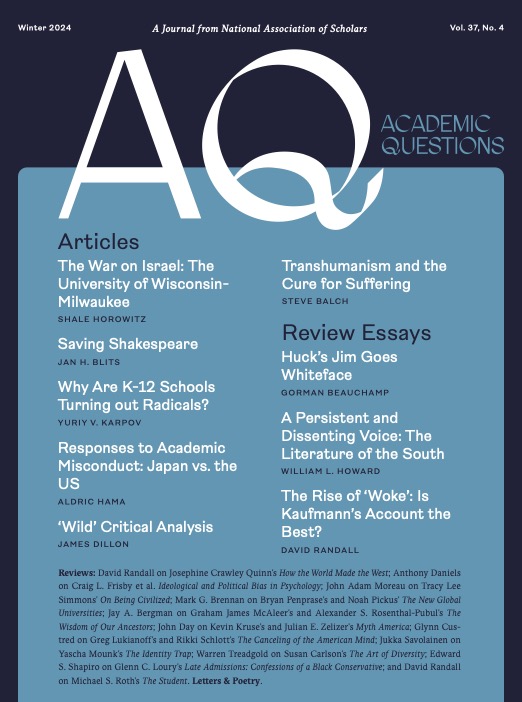The sun comes up one morning and spreads its golden rays across a bookcase, and I realize I own far many more books than I will ever read. Then I sit down and order some more. It is, as one writer on bibliomania titled it, A Gentle Madness.
I own that book too. Purchased it in 1995 when it came out. By Nicholas Basbanes, author most recently if Cross of Snow: A Life of Henry Wadsworth Longfellow, 2020. I am not much of a reader of biographies, perhaps because they remind me of how I have squandered my time reading books rather than discovering ancient cities or composing immortal verse. In any case, A Gentle Madness has sat unopened for thirty years on one of my shelves, its cover sun-fading and gathering spectacles of dust and asking, in the disconsolate way of unread books, “How long?”
Part of the problem is that I am not a speed demon. I read carefully, almost always cover to cover, even books that I dislike. It is as if having invested an hour or two, I am obligated to travel the whole distance. That sometimes yields unexpected rewards as plodding along I hit a beautiful passage. But mostly the plowman homeward plods his weary way.
Still one learns things. The same Old English manuscript to which we owe the survival of Beowulf contains a poem titled “Solomon and Saturn,” which is a dialogue between a Biblical king and a visiting Chaldean, in which they pose riddles to one another. In some cases, the answers to the riddles are so enigmatic that no one today can make sense of them, Saturn, for example, asks about “a singular thing in this worldly realm.” That’s not much to go on, but Solomon tells him it is a captive bird called the Vasa Mortis (“Vessel of Death”) that the Philistines have chained up. It has four heads, a whale-sized body, and the wings of a vulture, and will be held in captivity until the end of the world. In the meantime it “screeches miserably, lamenting its misfortunes.” (Translation by Dr. Ophelia Eryn Hostetter, which is the transgender-nym of Rutgers English professor Aaron Hostetter. We would need Solomon to figure this out.)
The Vasa Mortis is a demon of some sort apparently, though one modern scholar suggests it is an allegory of fame. As it happens, the New York Times has recently reported on César Perdomo’s discovery of a fossil on his ranch in Columbia in the Tatacoa Desert. César, who has collected many fossils, had found the upper leg bone of an enormous creature called a terror bird, that stood over ten feet tall and was the apex predator of its time, the middle Miocene, 13 million years ago. The thighbone indicated a new species and so far the largest of its clan.
Plainly, César had laid hands on the Vasa Mortis. I know this because my wayward readings have included Hana Videen’s The Deor Hord: An Old English Bestiary, without which I would never have overheard Solomon and Saturn one-upping each other.
I shall never read all my books, but like César, I will discover enough remnants to keep me enthralled with the world.
This issue of Academic Questions will, I hope, enthrall you too. The first sighting of the terror bird is in Milwaukee, where political scientist Shale Horowitz observes the University of Wisconsin Milwaukee chancellor cooing soothing words to the students who set up an illegal encampment on campus to celebrate the deed of Hamas for slaughtering Israelis in the name of Palestinian liberation. Horowitz’s essay, “The War on Israel,” provides a detailed account of one of the many instances in which hapless college officials dithered their way through a moral emergency.
According to Solomon it took two-hundred Philistine wardens to keep the Vasa Mortis under control. It seems to take more than that to imprison Shakespeare in the shackles of postmodernism. We offer an article by Jan Blits, professor emeritus of education at the University of Delaware, who in “Saving Shakespeare,” examines the violence contemporary editors have inflicted on the Bard’s plays, particularly in the form of insisting that his Roman plays are really just commentary on Britain of his own time.
“Why Are K-12 Schools Turning out Radicals?” asks Yuriy V. Karpov, professor of education at Touro University. It is a question that stumps many parents—a riddle perhaps posed by Saturn in a saturnine mood. Karpov turns to Jean Twenge’s work on Generations to form a hypothesis. “Millennials have developed a heightened sense of self-esteem not grounded in knowledge and an understanding of the importance of continuous learning.” Karpov, a Russian immigrant to Canada, looks to school curricula to find the origins of this unearned pride.
Aldric Hama is an American-born author who writes frequently about Japan but who keeps his professional life discreet. We truly know little about him except that his writing is concise, factual, and free of rhetorical fanfaronade. In “Responses to Academic Misconduct: Japan vs. the US,” he compares to the disadvantage of American institutions how Japanese institutions responded to the discovery of academic misconduct. It wasn’t that the Japanese researchers had clean hands. Retraction Watch’s list of the top ten offenders found five were Japanese. Three were dismissed from their institutions and one other committed suicide. Harvard Medical School faced with a scandal of similar proportions left its “individual academics” generally “unscathed.” There is something to be said for a culture of shame. Not that we want to unleash Vasa Mortis, but the Sweet Bird of Impunity may be worse.
University of West Georgia psychologist James Dillon in the “’Wild’ Critical Analysis” witnesses the danger of setting students loose with versions of “critical theory,” where, lacking perspective, their “Puppy’s zeal” can do great damage. They ought to approach these sharp tools “with a spirit of fear and trembling.” Solomon could not have said it better.
NAS founder Steve Balch returns to this issue with a philosophical rumination on “Transhumanism and the Cure for Suffering.” Perhaps Artificial Intelligence will dispense with flesh and the ills it is heir to. Our super-intelligent but non-human successors might tolerate our blood and bone versions—if we are lucky. We should have known this would come back to doomsday, sooner or later, when Vasa Mortis is free at last.
This issue offers four splendid review essays as well. Gorman Beauchamp takes up Percival Everett’s astonishingly popular novel, James, which retells one of the greatest works of American fiction, Huckleberry Finn, in a comprehensive desecration of the original.
William Howard offers in “A Persistent and Dissenting Voice: The Literature of the South,” a review of two recent works that he deems “a tribute to the perseverance of scholars driven to the fringes of academe by wokeism and libeled by hate groups masquerading as monitors of hate groups.”
Jacob Williams, a Ph.D. student at Oxford, reviews Eric Kaufman’s The Third Awokening.
We have nine more reviews that fill out the issue and that beg for your attention, but I will limit myself to waving the flag for three of them. David Randall warns us against a new and likely to be very popular historical synthesis that argues that there is no such thing as Western civilization. Anthony Daniels provides a small masterpiece by way of reviewing an anthology on bias in psychology. And Jay Bergman examines a book that offers an attempt to “recalibrate Western Civilization.”
But don’t stop there. The riches continue.
There are, of course, more books here and perhaps more essays than you will ever read. But the morning sun pours down on you as it does on the Tatacoa Desert. The flightless terror bird eventually takes flight. Let’s make the most of the civilization we actually have.
Peter Wood is president of the National Association of Scholars and editor-in-chief of Academic Questions.














